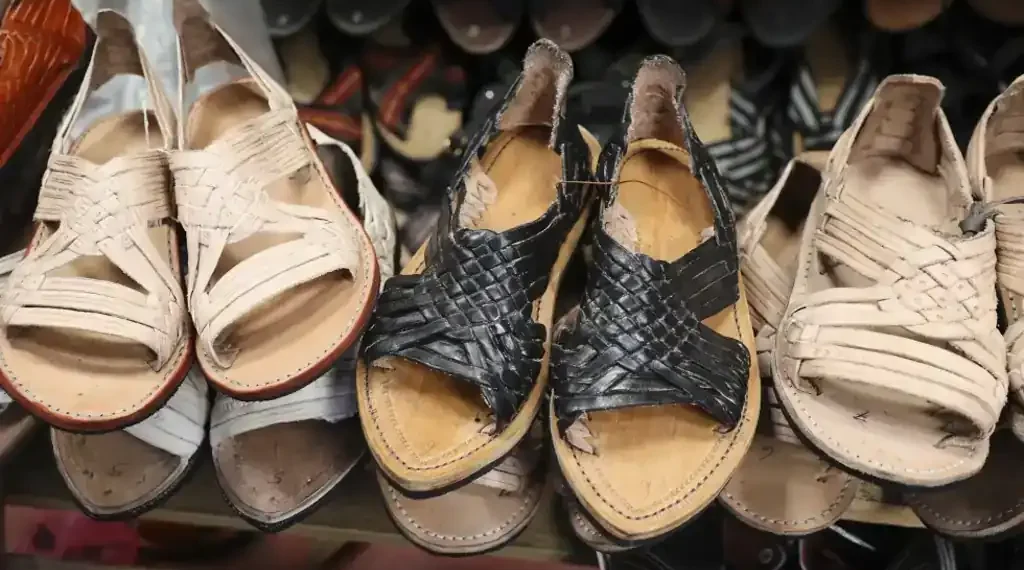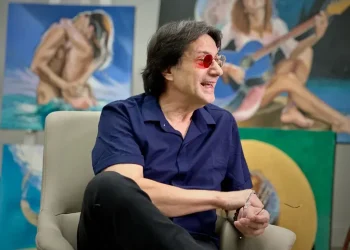Willy Chavarria Issues Apology Over Adidas Sandal Design Linked to Cultural Appropriation Claims
Published Time: 08-13-2025, 15:10
Mexican-American fashion designer Willy Chavarria has publicly apologized for his role in creating an Adidas sandal accused of copying a traditional Indigenous design from Oaxaca, Mexico. The controversy erupted after Mexican authorities and artisans alleged that the shoe, marketed as the “Oaxaca Slip On,” replicated the craftsmanship of the Zapotec community without their consent.
The Controversial Design
The Adidas “Oaxaca Slip On” features black braided leather straps mounted on a thick, modern sports sole. According to artisans and officials, its intricate weaving closely mirrors the style of huaraches — traditional leather sandals handcrafted for generations in the Zapotec town of Villa Hidalgo Yalalag, Oaxaca.
Critics argue the design was released without meaningful collaboration with the Indigenous makers whose heritage inspired the footwear. Mexican cultural authorities labeled the product an example of “cultural appropriation,” a term used when elements of a marginalized group’s culture are adopted without acknowledgment, benefit, or permission.
Designer’s Public Apology
In a statement sent to The Associated Press, Chavarria addressed the “people of Oaxaca” directly, expressing regret over the design’s release.
“I am deeply sorry that the shoe was appropriated in this design and not developed in direct and meaningful partnership with the Oaxacan community,” Chavarria wrote. “This falls short of the respect and collaborative approach that Oaxaca, the Zapotec community of Villa Hidalgo Yalalag, and its people deserve.”
The designer emphasized that his intention was to “honor the powerful cultural and artistic spirit of Oaxaca,” noting the region’s influence on his work. He acknowledged that the process failed to meet the standards of respectful cultural collaboration.
A Career Rooted in Cultural Themes
Chavarria, who has gained international recognition for designs that explore Chicano and Mexican-American identity, often integrates cultural references into contemporary fashion. His work includes sweaters emblazoned with the word “Chicano” in bold red script and clothing incorporating Mexican flag motifs and northern Mexican cowboy hat styles.
Earlier this year, Chavarria drew media attention for a Paris Fashion Week presentation critiquing former U.S. President Donald Trump’s immigration and deportation policies. His brand is known for blending political and cultural commentary with high fashion.
Adidas Responds to the Backlash
Adidas issued its own apology days before Chavarria’s statement, affirming its commitment to respectful engagement with Indigenous communities. In a letter to Oaxacan state officials, the company expressed willingness to meet with local leaders from Villa Hidalgo Yalalag to discuss reparative actions.
“Adidas recognizes and values the cultural richness of Mexico’s Indigenous communities and the meaning of their artisanal heritage,” the company stated.
The brand also pledged to “collaborate with Yalalag in a respectful dialogue that honors their cultural legacy” and explore ways to ensure such situations are avoided in the future.
Broader Concerns Over Cultural Appropriation in Fashion
This incident adds to a growing list of cultural appropriation disputes between global brands and Mexican artisans. Mexican officials have previously called out international labels for using Indigenous patterns and designs without credit or compensation.
Oaxaca’s state government has indicated plans to strengthen legislation that safeguards traditional designs and ensures communities benefit from their cultural heritage. Advocates argue that intellectual property protections for Indigenous artistry are critical to preserving traditions and supporting local economies.
Looking Ahead
While both Chavarria and Adidas have expressed apologies, community leaders stress that meaningful reparations will require more than statements. They hope the controversy will lead to long-term partnerships that directly benefit Zapotec artisans and preserve their craft.
For Chavarria, the incident marks a pivotal moment in his career — one that highlights the importance of consent, collaboration, and respect when drawing on cultural heritage in commercial design.
This article was rewritten by JournosNews.com based on verified reporting from trusted sources. The content has been independently reviewed, fact-checked, and edited for accuracy, neutrality, tone, and global readability in accordance with Google News and AdSense standards.
All opinions, quotes, or statements from contributors, experts, or sourced organizations do not necessarily reflect the views of JournosNews.com. JournosNews.com maintains full editorial independence from any external funders, sponsors, or organizations.
Stay informed with JournosNews.com — your trusted source for verified global reporting and in-depth analysis. Follow us on Google News, BlueSky, and X for real-time updates.














